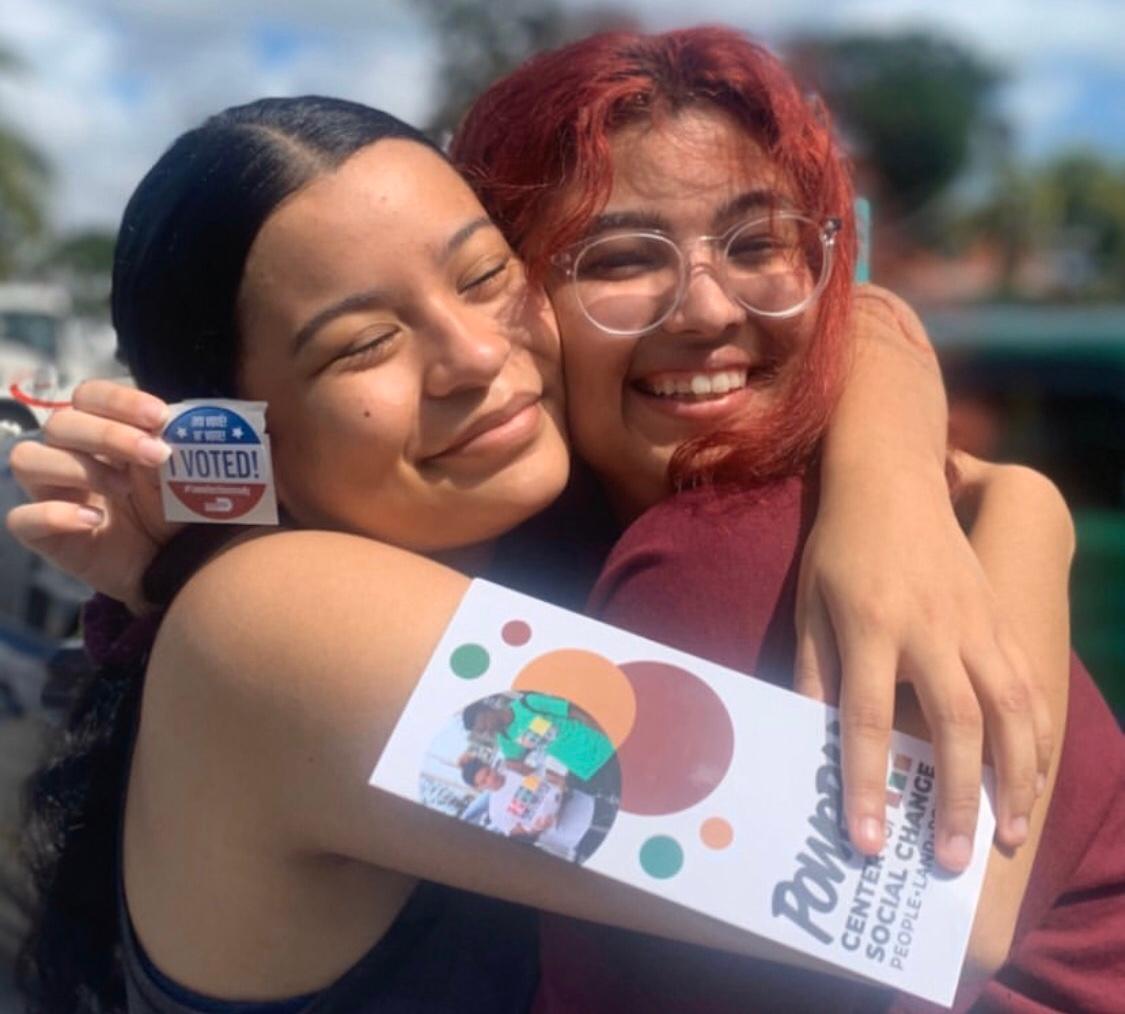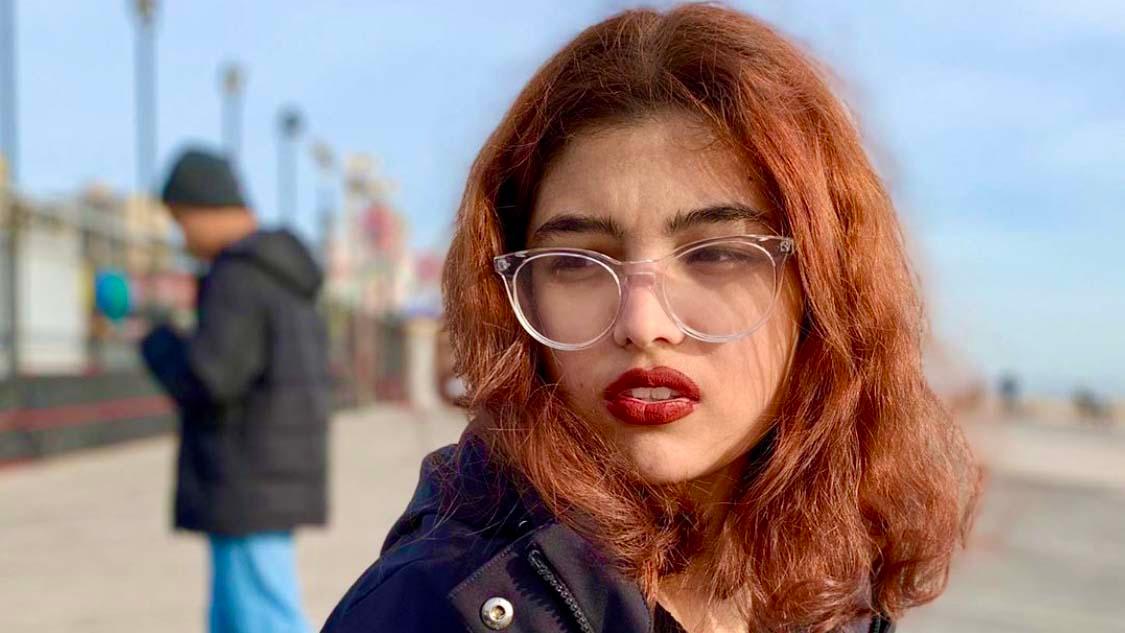Pandemic makes social justice issues more personal for this young Florida voter
Yaneilys Ayuso, who will vote for the first time in November, remembers their multicultural studies class as the catalyst for their involvement in political organizing.
Yaneilys Ayuso remembers their multicultural studies class during their junior year of high school as the place where they learned about issues that now matter most to them: human rights, racial justice, immigration, women’s rights and the rights of farmworkers and domestic workers.
It’s also where they learned to channel their sense of injustice into political organizing.
“People of color and black people and Indigenous people have had to struggle through in order to be where they are now,” said Ayuso, 18, who identifies as nonbinary and uses the pronouns they and them. “I think for so long, I had all the words to talk about the problems, and none to come up with solutions.”
These issues have taken center stage since the coronavirus pandemic hit, Ayuso said — and now, they’re even more personal.
“My mom just got laid off from her job, and right now, we are kind of just figuring out how we’re going to navigate this global pandemic for the next coming weeks, and figure out what we are going to do about money and supplies.”
“My mom just got laid off from her job, and right now, we are kind of just figuring out how we’re going to navigate this global pandemic for the next coming weeks, and figure out what we are going to do about money and supplies,” said Ayuso, a high school senior of Cuban and Puerto Rican descent who lives in Miami. “It’s definitely a stressful time for me and my family.”
Ayuso has spent much of the last year trying to encourage Florida youth to get involved in politics. They have canvassed to increase voter registration and helped organize get-out-the-vote parties.
But for now, their activism is on hold: The city of Miami has implemented curfews and stay-at-home measures as schools shift to online-only classes.
Related: Every 30 seconds, a young Latino in the US turns 18. Their votes count more than ever.
There are about 3.1 million eligible Latino voters in Florida. Its Latino voter population falls just behind California and Texas, meaning candidates are fighting for those votes.
Unlike several other states that postponed their primaries due to concerns around the coronavirus, Florida did not. It held its primary on March 17 as scheduled.
Even with a pandemic, politics is still on Ayuso’s mind.
“I’m definitely thinking of politics all the time. I’m waiting to see what happens in the upcoming weeks,” Ayuso said.
Last year, Ayuso joined Dream Defenders, a Florida-based social justice group, after the organization made an appearance in their multicultural studies class. The group’s Miami chapter has about 80 members, most of whom are black and brown and young. Ayuso led initiatives via the group to increase youth engagement in political issues that affect their communities.
Evolution of political engagement
Ayuso grew up in Wynwood, a Miami neighborhood formerly known as El Barrio or Little San Juan. Now, the neighborhood has turned into a tourist attraction and art district.
Ayuso, now a high school senior, has bright red hair that they call “Ariel mermaid hair” and wears huge hoop earrings and bulky pink glasses. Because of that, they go by the nickname Pink.
Their mentor, Quayneshia Smith, remembers meeting them for the first time. Smith said Ayuso was a little shy, but she saw something in them.
“Something that I appreciate is that [Ayuso] brought up the need to be more intentional about creating spaces for youth to be in,” Smith said.
Related: For this young Latina voter, pandemic highlights need for ‘Medicare for All’
With guidance from Smith, Ayuso gained confidence — and threw their effort into getting others involved in politics.
“And [Ayuso] was just in a space like, ‘I want to know more and I want to grow,'” Smith said. “And [Ayuso] saw our fellowship as a tool and path for [them] to do that.”
Smith said youth like Ayuso care about their rights with a depth not necessarily seen in older generations.
“They are engaged. They see what their parents had to go through to get here and that reality — because of my status, certain things that I can’t do,” Smith said.
Access to health care amid the coronavirus
For Ayuso, the pandemic has underscored the issue of how difficult it is for immigrants in Miami — and across the country — to access health care.
“People who come here deserve to live dignified lives, whether they have papers or not.”
“People who come here deserve to live dignified lives, whether they have papers or not,” Ayuso said of immigrants.
Especially now, with the spread of the coronavirus.
“Our health care system is completely broken, and the way that the government finds trillions of dollars to bail out banks, but not enough to provide for testing kits and research and all the things we really need right now,” Ayuso said. “It’s just really telling of the empire that we live in.”
Ayuso said they are ready for this year’s presidential election and will be voting for the first time.
Related: Why some Florida Latinos question Sanders’ democratic socialism
Ayuso is paying close attention to Vermont Sen. Bernie Sanders and his campaign. They voted for Sanders in the Florida Primary in March, but as results show, Sanders lost the Florida primaries to former Vice President Joe Biden by an almost 40-point margin.
“If Biden wins the primary, I will not be voting. Just as simple as that,” Ayuso said.
For now, Ayuso can’t do any in-person, get-out-the-vote campaigns due to the coronavirus. Miami is a ghost town as people are urged to stay at home and wait out the pandemic.
But to pass the time, when they are not working on their online classes, Ayuso writes poetry as they wait for the November election.
